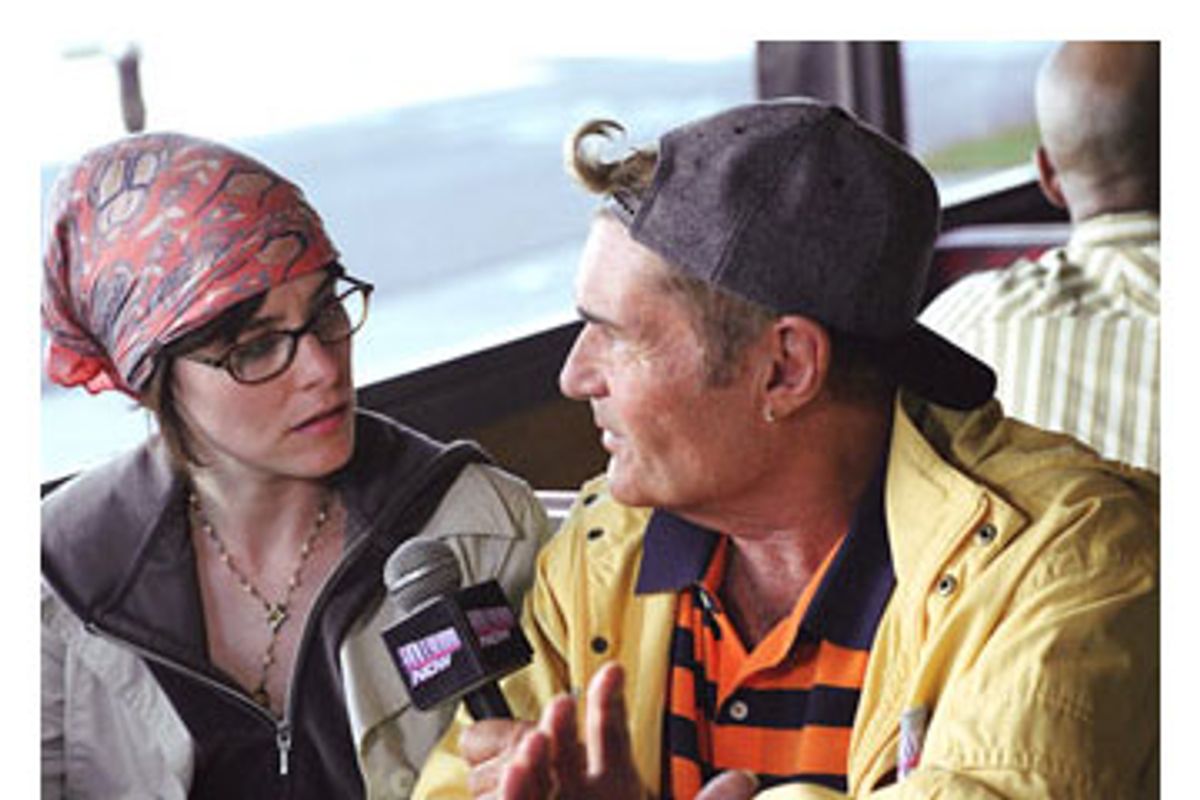In a world of disappointing movie comedies, the pictures of Christopher Guest and the trusty ensemble of actors who work with him -- among them Eugene Levy, Catherine O'Hara, Harry Shearer and Jennifer Coolidge -- have become dependable pleasures. The modest but entertaining 1996 "Waiting for Guffman" paved the way for the wonderfully detailed 2000 dog-show sendup "Best in Show"; in 2003, Guest and his actors refined their approach even further with their deeply affectionate folkie-reunion mockumentary "A Mighty Wind," which may well turn out to be one of the most perfect (and the most moving) comedies of the decade.
The only problem with perfection is that it's hard, if not impossible, to top it. Guest's latest, "For Your Consideration," may have just as many genuinely funny lines as "A Mighty Wind" did, and the actors are as sharply attuned to one another's rhythms as ever. But the picture doesn't have the same emotional depth as "A Mighty Wind," perhaps partly because its premise -- a group of semi-washed-up actors, cast in a third-rate period film, hear a rumor that fosters in each of them the hope of winning an Oscar -- doesn't evoke any nostalgia in us. Egotistical, insecure actors, like the poor, are always with us. But the estranged husband-and-wife folk duo of "A Mighty Wind" (played with prickly brilliance by Levy and O'Hara), who reunite, reluctantly, for one last performance, are part of a rarer breed. Old-time protest singers living in an age of indifference, they take one last, longing look at an era that can never be recaptured -- and realize it's just as well those days are over anyway. O'Hara and Levy are blissfully funny, but their fractured, shorthand banter is that of a couple who nearly killed each other on the battleground of marriage. After years of separation, they're better off without each other -- and yet somehow completely lost.
There are no characters that vivid in "For Your Consideration" (which, like "Waiting for Guffman," "Best in Show" and "A Mighty Wind" was co-written by Levy and Guest, with a great deal of improvised material added by the cast). But the picture is casual and good-natured, and it grooves on the same kind of brainy absurdity that the earlier pictures did. The film within a film in "For Your Consideration" is called "Home for Purim," a World War II-era family drama about dying mothers, lesbianism and the Jewish holiday. The deliciously named Marilyn Hack (O'Hara) is the movie's star, an aging actress who pretends not to worry about her career even though we can see her fears taking up permanent residence in those little wrinkles between her eyebrows. But one day a crew member tells her that some Web wag declared on his blog that she had Oscar potential, and her dreams of glory expand to monstrous proportions. More rumors start to simmer: Marilyn's costars, the earnestly bland Victor Allan Miller (Harry Shearer) and the high-strung wackbird Callie Web (Parker Posey who, in her '40s garb and retro rolled updo, looks more like Katharine Hepburn than ever) hear that their performances might be nominated. A few benign rumors become an Oscar juggernaut, and the actors' egos expand accordingly.
Even if "For Your Consideration" feels slender and unsubstantial compared with its predecessors, the actors still work beautifully together, all attuned to the same weird signal. Guest plays Jay Berman, the director of "Home for Purim," a serious-minded fellow with an "Eraserhead" frizz of hair and a penchant for wild-colored short-sleeved shirts. (Just watching him chomp on a sandwich is funny.) Jennifer Coolidge is a flaked-out diaper heiress who has decided to pour her money into the glamour of movies. Levy appears as an old-style agent who gleefully barks bad news to his already depressed clients over the phone. And "Entertainment Tonight" will never look the same after you see what Fred Willard and Jane Lynch do to it.
So few filmmakers even know how to make an entertaining trifle these days, and "For Your Consideration" is that, at least. And the movie does scale a few peaks of inspired lunacy. Michael Higgins plays a publicist who seems to have left his communications skills in his other pants ("Internet -- that's the one with e-mail, right?"). At one point he lets loose with a dazzling non sequitur: "In every actor there lives a tiger, a pig and a nightingale." By the time you realize that the line makes zero sense, it has already whizzed by, leaving our delayed reaction as its calling card.



Shares